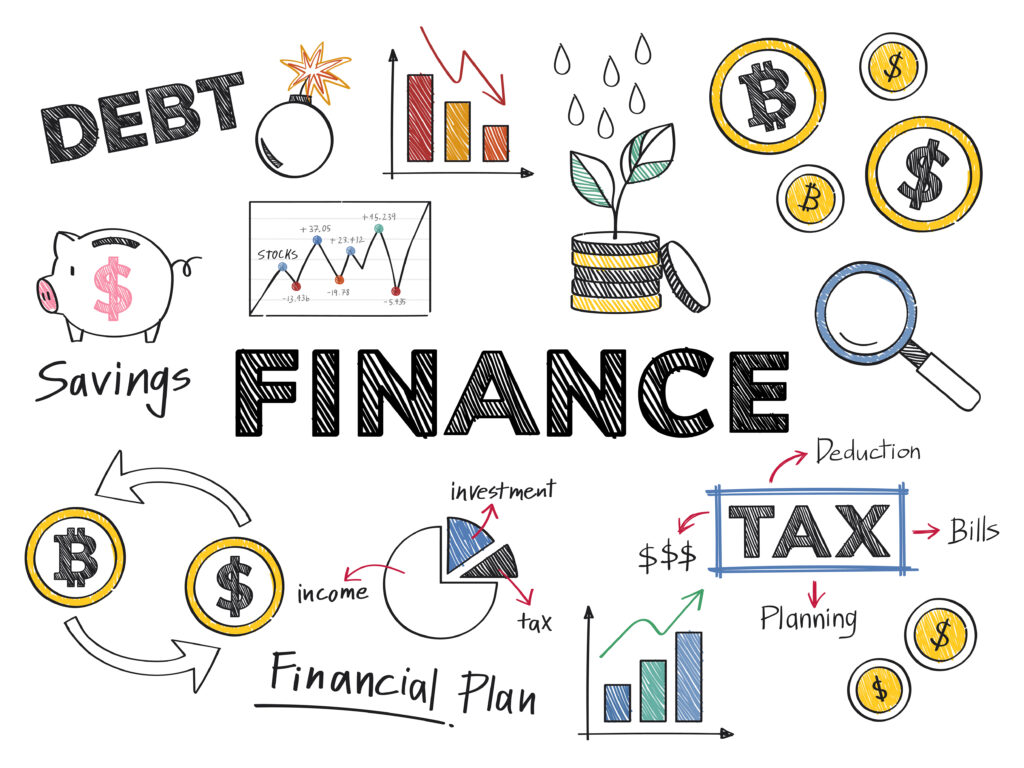The Best Financial Literacy Program For Kids aims to educate learners the concepts of income and Expenses , personal finance, Gains and losses and Investing basics. The course covers taxation, savings & investment avenues, borrowing basics , how to manage risks and budgeting etc.
Best Financial Literacy Program for Students would allow participants to learn about various financial institutions and how they owuld need to learn them to beneift in invesitng and help lead a financially managed life. The course is designed to help students become aware of the diverse investing products through which they would meet their financial needs in the near term and demonstrate a prudent financial behaviour.
The Best Financial Literacy program For Students
A financial literacy program for Students is an educational initiative that teaches individuals how to manage their money effectively. It provides them with the knowledge and skills necessary to make informed decisions about saving, investing, and spending. Financial literacy programs cover a range of topics, including budgeting, debt management, retirement planning, and financial goal-setting. By enrolling in a financial literacy program, individuals can gain the confidence and competence needed to take control of their financial lives.
This program is designed to be accessible to students & individuals of all ages, backgrounds, and income levels, making it an essential tool for building financial stability and security. This Program is designed for K-6 & K-8 upwards and also for those who does not have the knowledge in Investing basics and lack a basic understanding of Financial Planning and Budgeting.
Feature Rich-The best Financial Literacy Program For Kids


1.Income-Expense Basics
Understanding the basics of income and expenses is crucial for managing personal or business finances effectively. Income refers to the money one earns or receives. This can come from various sources such as salary, wages, business profits, rental income, interests on investments. It is essential to track and categorize your income accurately.
Expenses, on the other hand, represent the money one spends or the costs incurred in daily life or business operations. Expenses can include rent, utilities, groceries, transportation, entertainment, taxes,Electricity Bills, employee salaries, and more. It is important to monitor and categorize your expenses to gain clarity on where your money goes.
2.Currency Basics
Currency refers to a system of money in general use in a particular country or region. It is typically in the form of coins (metallic legal tender) or banknotes (paper money).
Currency serves several functions in an economy, including:
Medium of Exchange: It facilitates the buying and selling of goods and services.
Unit of Account: It provides a common measure for comparing the value of different goods and services.
Store of Value: It allows people to save their wealth in a stable form over time.
3.Financial IQ
Financial IQ refers to a person’s knowledge and understanding of financial concepts and their ability to effectively manage their personal finances. It encompasses a wide range of topics including budgeting, saving, investing, and debt management.
Having a high financial IQ can greatly impact one’s financial well-being and overall success in life. It involves being able to make informed financial decisions, set and achieve financial goals, and navigate through the complexities of the financial world.
To improve your financial IQ, you can engage in activities such as reading books and articles on personal finance, attending financial workshops or seminars, and seeking advice from financial professionals.
4. Saving & Investing Basics
Investing basics are essential for anyone looking to enter the world of investing. Here are some key concepts to get you started:
Goal Setting: Before you start investing, define your financial goals. Are you saving for retirement, buying a house, or funding your child’s education? Setting clear goals will help you make informed investment decisions.
Risk Tolerance: Assess your risk tolerance, which determines how comfortable you are with taking risks. Investments come with varying levels of risk, and understanding your tolerance will guide you in selecting appropriate investments.
Diversification: Diversifying your investment portfolio helps reduce risk. Spread your investments across different asset classes (such as stocks, bonds, and real estate) and within each asset class to mitigate the impact of any individual investment’s performance.
Asset Allocation: Determine how to allocate your investment funds among different asset classes. This decision should align with your risk tolerance, goals, and investment time horizon. Asset allocation allows you to balance potential returns and risks.
Compounding: Take advantage of the power of compounding by reinvesting your investment earnings. Compounding allows your investments to grow exponentially over time, as your earnings generate further earnings.
Research and Education: Keep learning about investing. Stay informed about market trends, economic factors, and company performance. Research and education are crucial for making sound investment decisions.
5.Budgeting
Budgeting is an essential financial management tool that helps individuals and businesses plan, track, and control their expenses and income. Here are some key points to consider when it comes to budgeting:
Setting financial goals: Start by identifying your short-term and long-term financial goals. These can include saving for retirement, paying off debt, or buying a new car. Clear goals will allow you to allocate your resources effectively.
Tracking income and expenses: Track all sources of income and categorize your expenses. This can be done manually or by using budgeting software or financial apps. Understanding where your money is coming from and where it’s going is crucial for effective budgeting.
Creating a budget: Based on your income and expenses, create a budget that outlines how you plan to allocate your money. Be realistic and make sure your expenses do not exceed your income. Consider saving a percentage of your income for emergencies or future investments.
Monitoring and adjusting: Regularly review your budget and compare your actual expenses to your planned expenses. Identify areas where you can cut back or save more. Look for patterns and trends in your spending habits and make adjustments as necessary.
Dealing with unexpected expenses: Budgeting should account for unexpected expenses, such as medical emergencies or car repairs. Set aside a portion of your income for unforeseen circumstances to avoid going into debt.
Seeking professional advice: If you’re struggling to create or stick to a budget, consider seeking professional advice from a financial planner or advisor. They can help analyze your financial situation and provide personalized strategies for effective budgeting.
6.Financial Institutions
Financial institutions encompass a wide array of entities that provide financial services to individuals, businesses, and governments. These institutions play pivotal roles in the global economy and include various types such as:
- Banks
- Investment Banks
- Asset Management Firms
- Credit Unions
- Pension Funds
- Central Banks
- Microfinance Institutions
- Hedge Funds
7.How to Grow your Money?
Growing your money requires a combination of smart financial decisions and strategic planning. Here are some steps to help you grow your money:
Create a budget: Start by understanding your income and expenses. Analyze your spending habits and identify areas where you can cut back. Allocate a certain portion of your income towards savings and investments.
Set financial goals: Determine your short-term and long-term financial goals. Whether it’s saving for a down payment on a house, a vacation, or retirement, having specific goals will help you stay focused and motivated.
Save regularly: Make it a habit to save a portion of your income each month. Consider automating your savings by setting up automatic transfers to a separate savings account. This way, you won’t be tempted to spend the money before saving it.
Diversify your investments: Instead of putting all your money in one investment, diversify your portfolio. Invest in a mix of stocks, bonds, real estate, and other assets. Diversification helps mitigate risks and increase potential returns.
Educate yourself about investing: Learn about different investment strategies, such as stocks, mutual funds, index funds, or real estate. Understand the risks involved and seek professional advice if needed.
Take advantage of employer benefits: If your employer offers retirement plans or matching contributions, make sure you participate. It’s essentially free money that can significantly boost your savings.
Minimize debt: High-interest debt can eat away at your savings. Prioritize paying off credit card debt or loans with high-interest rates. Adopting good financial habits and avoiding unnecessary debt will help you grow your money faster.
Stay informed: Keep up to date with the financial markets and economic trends. Stay informed about investment opportunities and make adjustments to your portfolio when necessary.
Be patient and consistent: Growing your money takes time and discipline. Avoid trying to time the market or chasing short-term gains. Stick to your investment plan, review it periodically, and make informed decisions
8.Financial Goal etc
Determine your short-term and long-term financial goals. Whether it’s saving for a down payment on a house, a vacation, or retirement, having specific goals will help you stay focused and motivated.
The Best Financial Literacy Program: For Whom?
a. For Undergraduate Students
b. For High School Students
c. For Individuals who wants to Learn Money & Investing Basics
How will The Best Financial Literacy program For Students help Learners?
1. Have an understanding of income and Expense Basics
2. Know the value of money and how to save wisely
3. knowing to help savings (money) grow from an early age
4. knowing how it owuld help being financially independent
5. How to make financial decisions the right way?
Low cost Financial Literacy Program For Students
| Course Fee : Approx $250 Plus Taxes |
| Course Fee : Approx Re 12,500 Plus Taxes |
| Course Fee : Approx AED 750 Plus Taxes |
Avoid paying Exorbitant fees to other websites and join today.
The Best Assignment Writing Service
| Description | $ | Re | AED |
| Assignment Writing Service Starts-Per Page | 5.5 | 400 | 22 |
| Assignment Writing Service Starts-$17/1000 words | 17 | 1260 | 65 |
| Online Tutoring Service starts -per Hour | 20 | 650 | 60 |
| Proctored Exams / Objective Assessments starts | 50 | 3500 | 200 |
| Case Study Solutions Starts | 50 | 4000 | 200 |
| Job Placement Exams starts | 50 | 3000 | 200 |
| Financial Literacy program Starts | 250 | 12500 | 750 |
Submit one Homework Question in Accounting & Finance,Economics to Get Solution for Free. Send the Homework Question to Whatsapp chat for faster Response and free solution. Send Name, Email , university , Course, Subject & Question image or file with instructions. Your first Solution is free of cost.